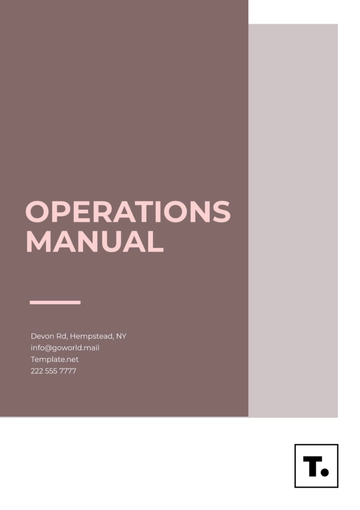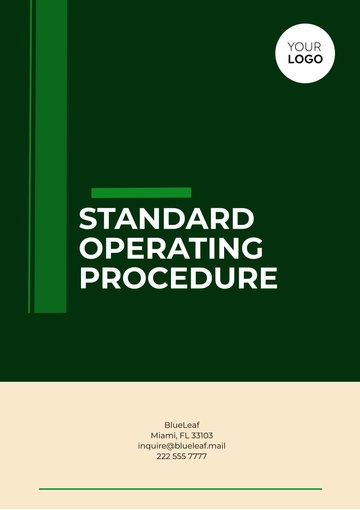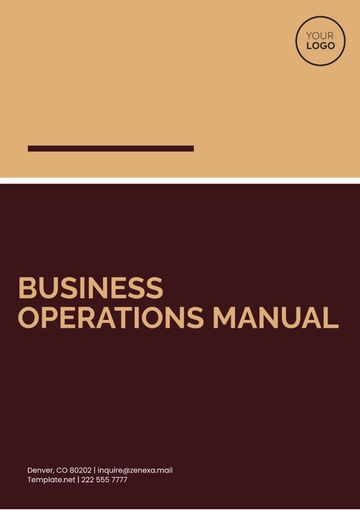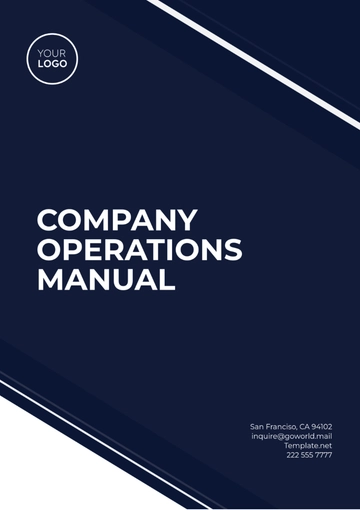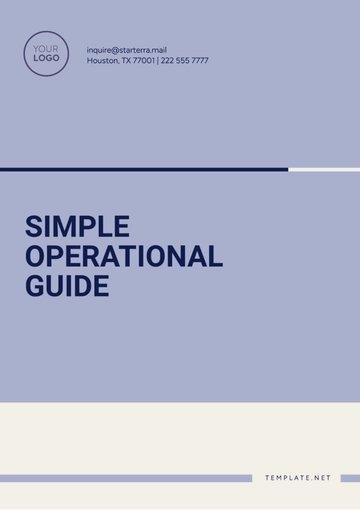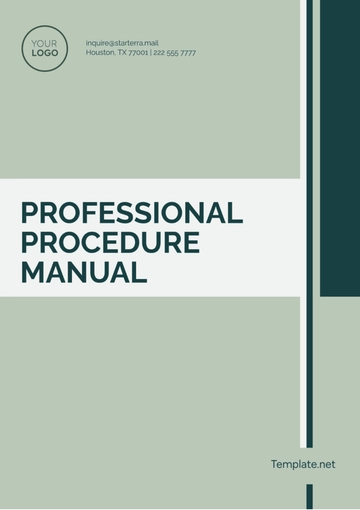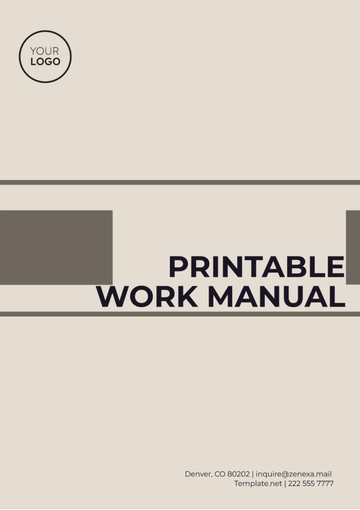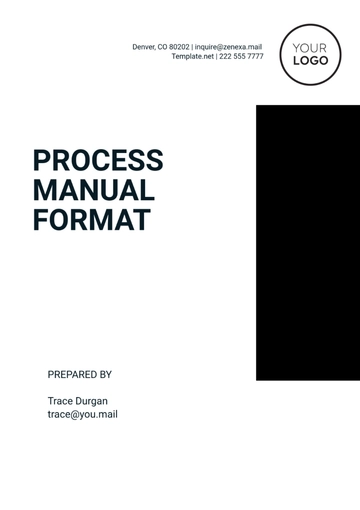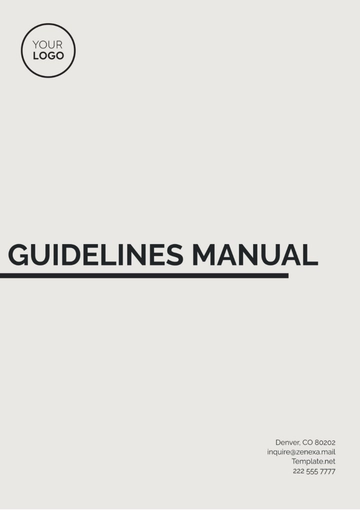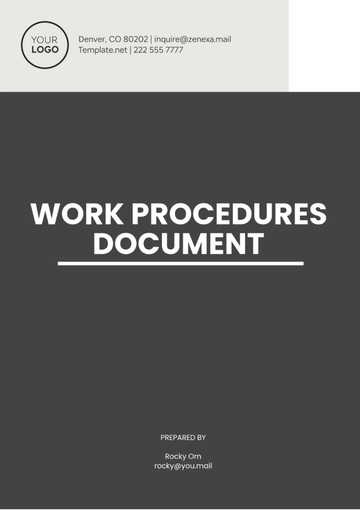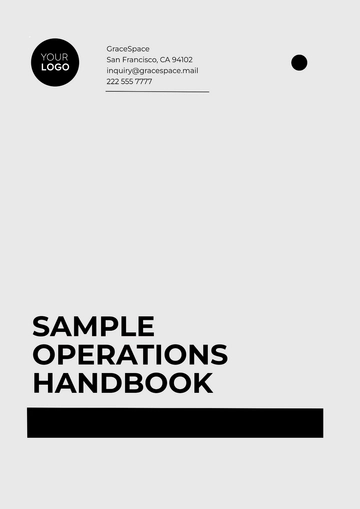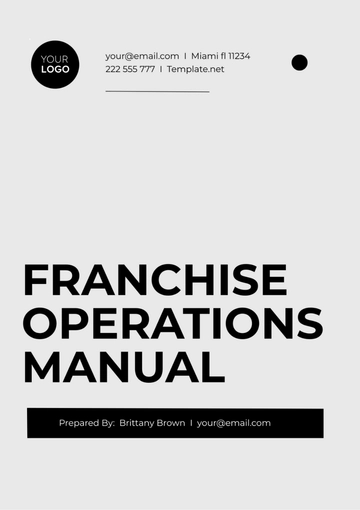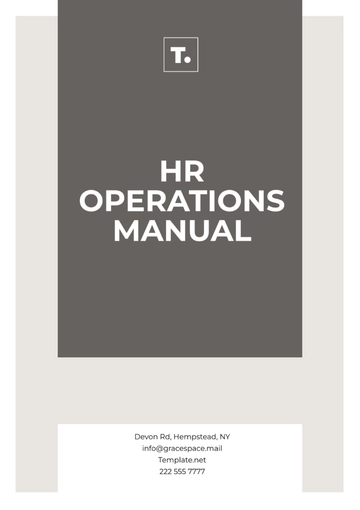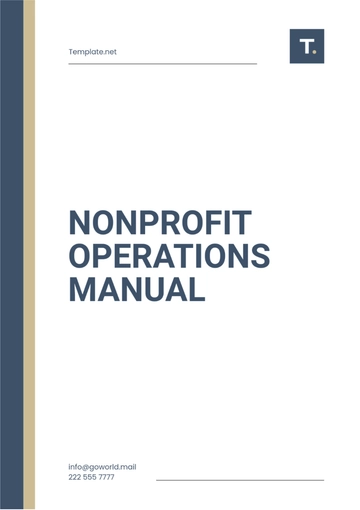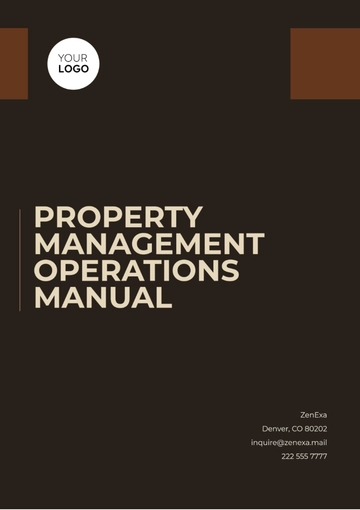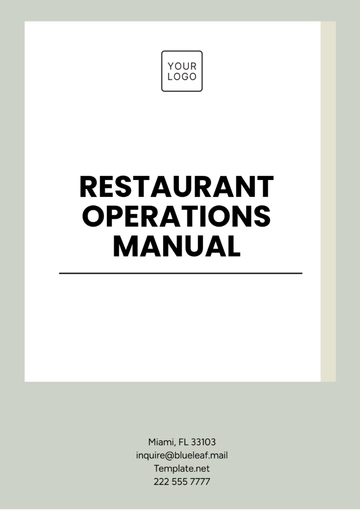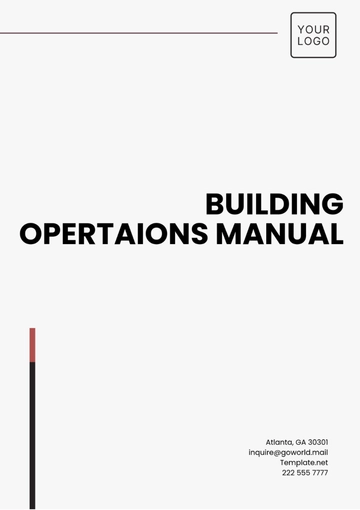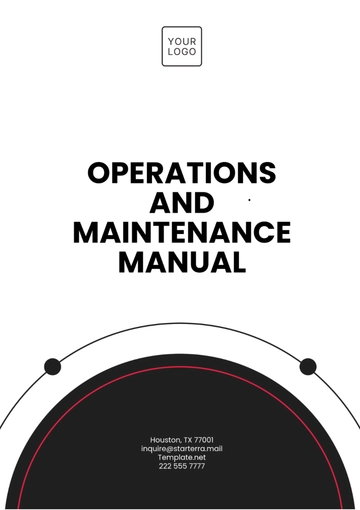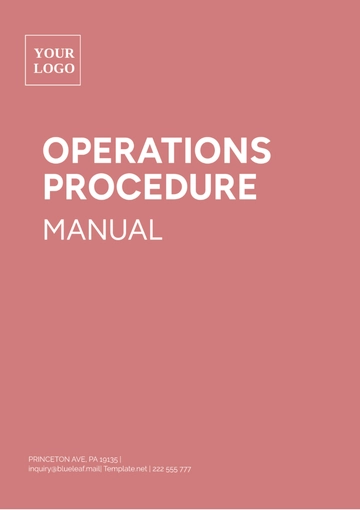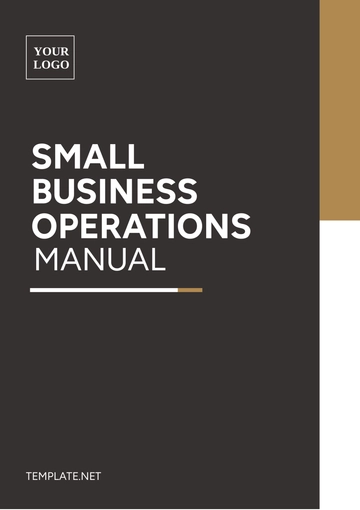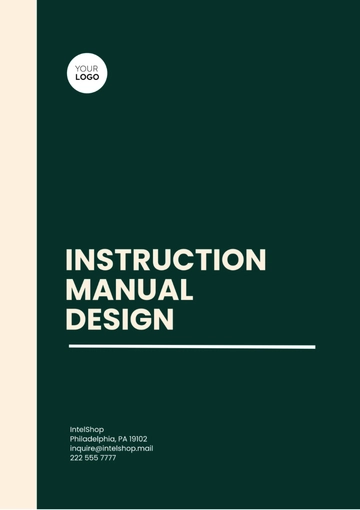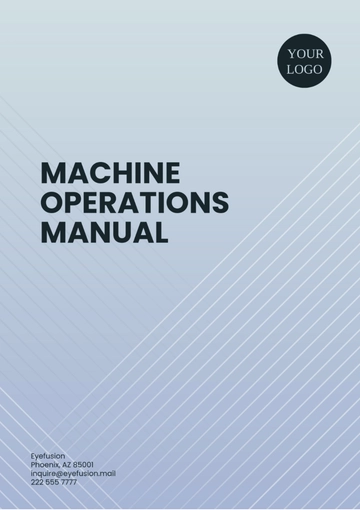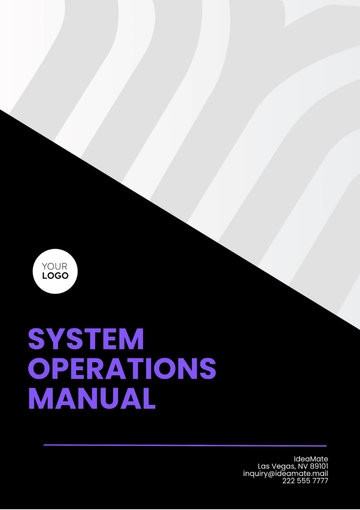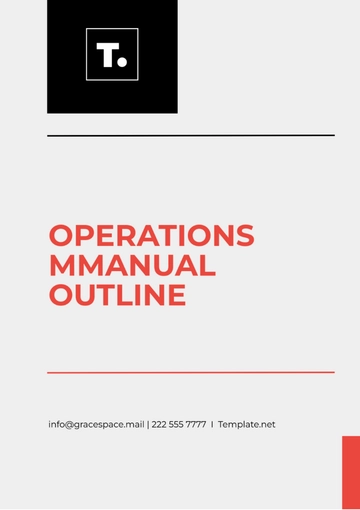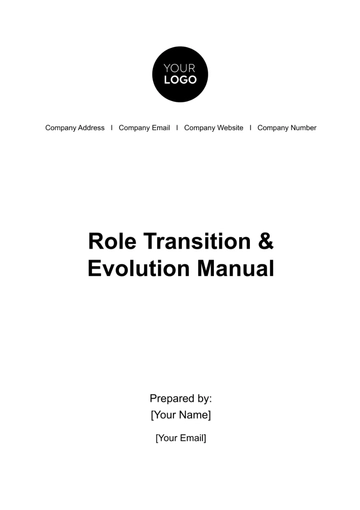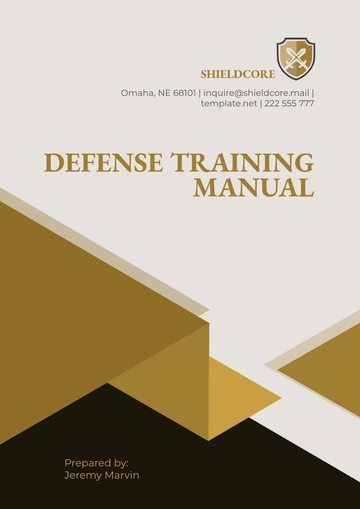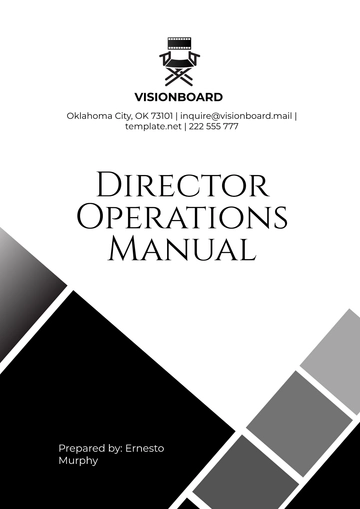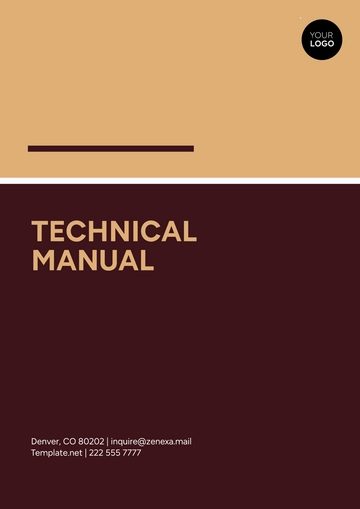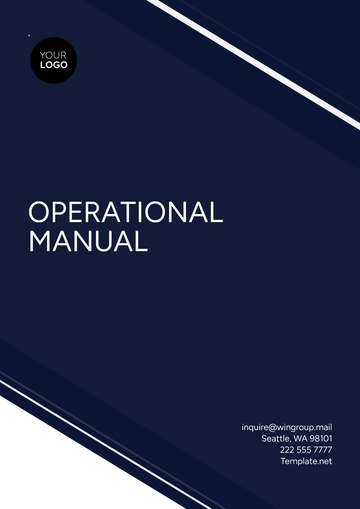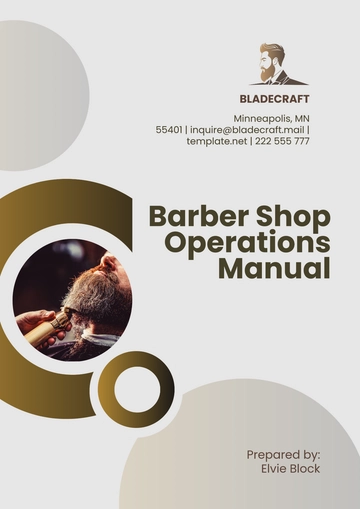Free Movie Theater Training Manual
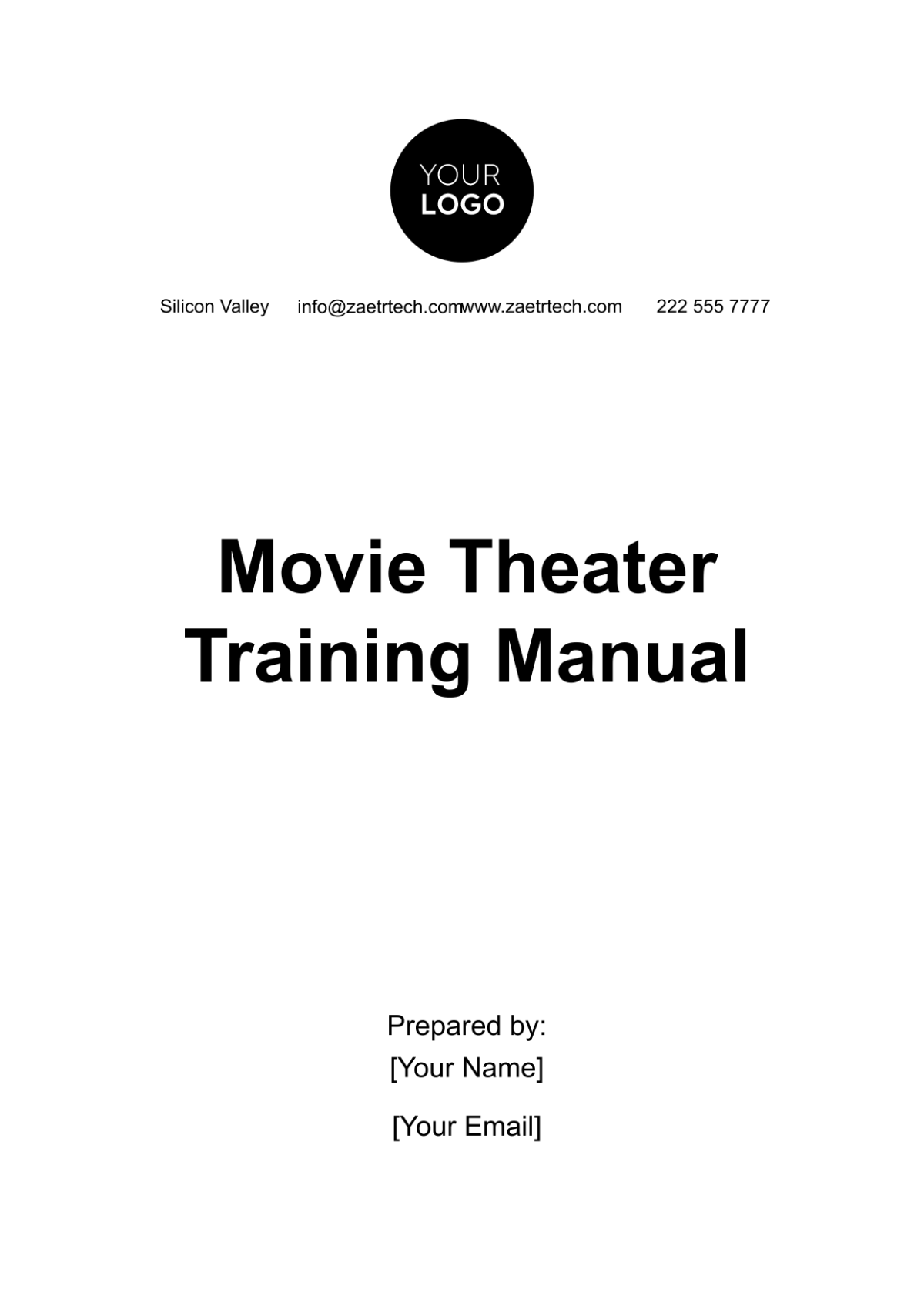
1. Introduction
1.1 Purpose
The purpose of this training manual is to provide comprehensive guidance for employees at [Your Company Name] as they navigate their roles within our movie theater. This manual is designed to ensure that all staff members are well-versed in operational procedures, customer service protocols, and safety standards. As we enter the year [2050], it is imperative that our employees understand the evolving landscape of the cinema industry, particularly in enhancing the customer experience through technological advancements and personalized service. This manual serves not only as a guide but as a framework for fostering a culture of excellence in every aspect of our operations.
1.2 Scope
This manual covers all aspects of movie theater operations, including but not limited to employee responsibilities, customer service standards, health and safety guidelines, and technology usage. It is intended for use by all employees, from management to front-line staff. Each section provides detailed information to facilitate a comprehensive understanding of theater operations, ensuring that every team member contributes to the smooth functioning of [Your Company Name]. The scope also extends to the expectations for employee behavior and performance, emphasizing our commitment to teamwork and customer satisfaction.
1.3 Overview of Operations
[Your Company Name] operates a chain of modern movie theaters equipped with state-of-the-art technology and customer service strategies tailored to meet the demands of the contemporary cinema-goer. As we embrace new trends and innovations, it is essential for our employees to adapt and uphold our commitment to excellence in every facet of the business. Our theaters are designed to provide an immersive cinematic experience, featuring comfortable seating, advanced sound systems, and cutting-edge projection technology. The operational framework is built on three core pillars: exceptional customer service, efficient operational processes, and a commitment to safety and cleanliness. Employees must be aware of how each aspect of their role contributes to these pillars and ultimately enhances the customer experience.
2. Employee Roles and Responsibilities
2.1 Management
Management plays a critical role in ensuring the smooth operation of the theater. Managers are responsible for overseeing all departments, including box office, concessions, and technical operations. Key responsibilities include:
Strategic Planning: Managers must develop and implement strategies that enhance the overall customer experience while driving revenue. This involves analyzing market trends, customer feedback, and operational performance to identify areas for improvement and growth.
Staff Management: Hiring, training, and evaluating staff to ensure all team members understand their roles and responsibilities. Managers should conduct regular one-on-one meetings with staff to discuss performance, set goals, and address any concerns that may arise.
Budget Management: Responsible for monitoring and managing the theater's budget, ensuring all departments operate within financial constraints. This includes forecasting revenue, controlling costs, and reporting financial performance to upper management.
Operational Oversight: Ensuring that all operations run smoothly, including managing schedules, staffing levels, and inventory control. Managers should conduct regular walk-throughs of the theater to assess operations and identify areas needing attention.
2.2 Front of House Staff
Front of house staff are the first point of contact for customers and play a vital role in delivering exceptional service. Their primary responsibilities include:
Ticket Sales: Efficiently processing ticket sales at the box office and through digital platforms. Employees must familiarize themselves with the ticketing system to ensure smooth transactions and reduce wait times for customers.
Customer Interaction: Greeting customers warmly as they enter the theater and providing assistance with any inquiries or issues that arise. This interaction is crucial in creating a welcoming atmosphere and making customers feel valued.
Concessions: Serving food and beverages while maintaining a clean and organized concession area. Front of house staff must be knowledgeable about menu items to provide recommendations and answer questions regarding dietary restrictions.
Crowd Management: Effectively managing the flow of customers during peak times, ensuring that lines are organized, and customers are served promptly. Staff should be trained to handle large crowds and maintain order.
2.3 Technical Crew
The technical crew is responsible for the operation and maintenance of projection and sound equipment. Responsibilities include:
Setup and Maintenance: Ensuring all projection and sound systems are properly set up and functioning before screenings. This includes calibrating equipment for optimal performance and troubleshooting any technical issues.
Troubleshooting: Addressing any technical issues that arise during screenings to minimize disruptions. Technical crew members must be equipped with problem-solving skills and knowledge of the equipment to resolve issues quickly.
Inventory Management: Keeping track of all equipment and supplies necessary for smooth operations. This includes conducting regular inventory checks and ensuring that all equipment is in good working order.
Collaboration: Working closely with management and front of house staff to ensure seamless communication and coordination, especially during special events or screenings.
2.4 Maintenance and Cleaning Staff
The maintenance and cleaning staff are crucial for maintaining a safe and clean environment for both employees and customers. Their duties include:
Cleaning Protocols: Following established cleaning protocols to ensure all areas of the theater are hygienic and welcoming. This includes daily deep cleaning tasks as well as routine cleaning throughout the day.
Maintenance Checks: Conducting regular maintenance checks on facilities and equipment to prevent any operational disruptions. This includes monitoring the condition of seating, restrooms, and emergency equipment.
Emergency Repairs: Addressing any urgent repairs to ensure a safe environment for patrons. Maintenance staff should be available on-call during operating hours to handle any emergencies that arise.
Sustainability Practices: Implementing sustainable practices in cleaning and maintenance operations, such as using eco-friendly products and recycling initiatives.
3. Customer Service Standards
3.1 Greeting Customers
The initial interaction with customers sets the tone for their entire experience at [Your Company Name]. Staff members should:
Smile and Make Eye Contact: A warm smile and direct eye contact convey friendliness and approachability. Staff should practice these skills to foster a positive atmosphere from the moment customers arrive.
Use Customer Names: When possible, use the customer’s name to personalize the interaction and foster a connection. This personal touch can enhance the customer’s overall experience and encourage repeat visits.
Offer Assistance: Proactively offer assistance, whether it’s guiding customers to their seats or answering questions about movie times and services. Staff should remain vigilant and attentive to customers’ needs.
Positive Language: Use positive language to create a welcoming environment. For example, instead of saying, “I don’t know,” staff can say, “Let me find out for you.”
3.2 Handling Complaints
Handling customer complaints effectively is essential for maintaining a positive reputation. Staff should follow these guidelines:
Listen Actively: Allow customers to express their concerns without interruption, demonstrating that their opinions are valued. Active listening involves nodding and maintaining eye contact to show engagement.
Acknowledge the Issue: Recognize the customer’s frustration and assure them that their issue will be addressed. Phrases such as “I understand why you’re upset” can help validate their feelings.
Provide Solutions: Offer practical solutions to resolve the issue, whether through refunds, exchanges, or complimentary services. Staff should be empowered to make decisions to address customer concerns effectively.
Follow-Up: After resolving the issue, follow up with the customer to ensure they are satisfied with the solution. This demonstrates commitment to customer satisfaction and builds loyalty.
3.3 Enhancing the Customer Experience
To create memorable experiences, staff should focus on:
Upselling: Encourage customers to try new menu items or premium experiences, such as VIP seating or special screenings. Staff should be trained on the features of new offerings to confidently make recommendations.
Engagement: Foster a lively atmosphere by engaging with customers, such as promoting upcoming events or participating in themed screenings. Staff can utilize social media to promote events and gather customer feedback.
Feedback Collection: Actively seek feedback from customers to identify areas for improvement and opportunities to enhance services. Staff should be trained to handle surveys and feedback requests effectively.
Creating Special Moments: Encourage staff to create special moments for customers, such as recognizing birthdays or anniversaries during their visit, making their experience more memorable and personalized.
4. Theater Operations
4.1 Ticketing Procedures
Efficient ticketing procedures are critical for managing customer flow and maximizing revenue. Employees must:
Online Sales: Understand how to assist customers with online ticket purchases and provide support for any issues they may encounter during the process.
Box Office Management: Manage the box office effectively during peak times, ensuring that lines move quickly and customers receive accurate information about screenings.
Refunds and Exchanges: Handle requests for refunds or exchanges following company policies. Staff should be trained to process these transactions efficiently while maintaining a positive demeanor.
Reporting Sales: Generate and analyze daily sales reports to identify trends and adjust staffing levels accordingly. Employees should be trained to use reporting tools available within the ticketing system.
4.2 Concessions Management
Concessions contribute significantly to the theater’s revenue and customer satisfaction. Staff responsibilities include:
Inventory Management: Monitor inventory levels to ensure that popular items are always in stock. Staff should regularly check supplies and communicate any shortages to management.
Quality Control: Ensure all food and beverage items meet quality standards and are prepared following health regulations. Employees should receive training in food handling and safety protocols.
Customer Service: Provide prompt and friendly service at the concessions counter. Staff should be encouraged to engage with customers, offering recommendations and upselling items.
Cleanliness: Maintain a clean and organized concessions area, including regular cleaning of equipment and surfaces to ensure a pleasant environment for customers.
4.3 Screening Room Setup
The setup of screening rooms is essential for providing an enjoyable viewing experience. Staff should:
Seating Arrangements: Ensure seating arrangements align with the theater’s policy, including reserved seating configurations. Staff should familiarize themselves with the layout and adjust as necessary for special events.
Equipment Checks: Perform equipment checks to confirm that all projection and sound systems are functioning correctly. This includes testing audio levels and image clarity prior to the start of screenings.
Cleaning Procedures: Conduct thorough cleaning of screening rooms after each showing, including picking up trash, wiping down surfaces, and checking for any maintenance issues.
Emergency Equipment: Ensure that emergency equipment, such as exits and fire extinguishers, is accessible and clearly marked. Staff should receive training on how to respond in case of an emergency.
4.4 Emergency Procedures
Safety is a top priority at [Your Company Name]. Employees should be familiar with emergency procedures, including:
Fire Evacuation: Understand the fire evacuation plan, including designated exit routes and assembly points. Regular drills should be conducted to ensure staff are prepared for any situation.
Medical Emergencies: Be trained to recognize medical emergencies and know how to respond appropriately, including calling for medical assistance and providing basic first aid if needed.
Security Protocols: Familiarize themselves with security protocols to handle incidents such as unruly customers or theft. Staff should be trained in conflict resolution techniques to diffuse tense situations.
Crisis Management: Participate in crisis management training to effectively respond to various scenarios, ensuring the safety of customers and employees alike.
5. Health and Safety Guidelines
5.1 General Safety Rules
The health and safety of our employees and customers is paramount. Employees should adhere to the following general safety rules:
Emergency Contacts: Keep a list of emergency contacts readily available, including local authorities, medical facilities, and emergency services. This list should be displayed in a prominent location for easy access.
Personal Protective Equipment (PPE): Follow guidelines for using PPE where required, including gloves, masks, or safety goggles. Employees should receive training on when and how to use PPE effectively.
Accident Reporting: Report any accidents or injuries immediately to management. A clear reporting process should be in place to document incidents and prevent future occurrences.
Hazard Identification: Regularly inspect the theater for potential hazards, such as spills or equipment malfunctions. Staff should be trained to recognize and address hazards proactively.
5.2 Emergency Evacuation Procedures
Employees must be prepared for emergency evacuations. Key procedures include:
Understanding the Plan: Familiarize themselves with the emergency evacuation plan, including exits, assembly points, and roles during an evacuation.
Conducting Drills: Participate in regular evacuation drills to ensure preparedness. Drills should be reviewed after completion to identify areas for improvement.
Assisting Customers: Assist customers in evacuating the building calmly and efficiently during an emergency. Staff should remain calm and provide clear instructions to guide patrons to safety.
Communication: Maintain open communication with management during emergencies to receive updates and relay information to customers. Employees should be equipped with communication devices for efficient coordination.
5.3 Health Protocols
To promote a safe environment, employees should follow established health protocols, including:
Sanitation Procedures: Implement routine cleaning and sanitation procedures, particularly for high-touch surfaces and communal areas. Staff should be trained on proper cleaning techniques and schedules.
Illness Reporting: Encourage employees to report any symptoms of illness or potential exposure to infectious diseases. Clear policies should be in place to address sick leave and return-to-work protocols.
Vaccination Policies: Stay informed about any vaccination policies related to public health guidelines and ensure compliance with local regulations. Employees should be encouraged to participate in vaccination programs.
Customer Safety: Communicate health and safety measures to customers, including sanitation practices and any policies regarding masks or social distancing. Staff should be trained to address customer concerns regarding health protocols effectively.
6. Technology and Equipment
6.1 Ticketing System
The ticketing system is a vital component of theater operations. Employees should:
System Familiarity: Understand the features of the ticketing system, including booking management, refunds, and reporting capabilities. Staff should receive comprehensive training on using the system efficiently.
Technical Support: Know how to troubleshoot common issues and when to escalate problems to technical support teams. Employees should maintain a list of common technical issues and solutions for quick reference.
Data Privacy: Adhere to data privacy regulations to protect customer information collected during transactions. Staff must be trained on best practices for handling sensitive customer data.
System Updates: Stay informed about system updates and changes to ensure continued efficiency. Regular training sessions should be scheduled to familiarize staff with new features.
6.2 Projection and Sound Equipment
Proper handling of projection and sound equipment is crucial for delivering high-quality screenings. Staff should:
Regular Maintenance: Conduct regular maintenance checks on all equipment to ensure optimal performance. Staff should follow a maintenance schedule and log all completed maintenance tasks.
Technical Training: Undergo training on the latest projection and sound technologies to stay current with industry advancements. Training should include hands-on practice with new equipment and technology.
Troubleshooting Skills: Develop troubleshooting skills to quickly identify and resolve issues that may arise during screenings. Employees should be encouraged to collaborate and share knowledge regarding technical challenges.
Safety Protocols: Adhere to safety protocols when handling equipment, including proper lifting techniques and securing cables to prevent trips and falls.
6.3 Concessions Equipment
Managing concessions equipment effectively is essential for smooth operations. Employees should:
Equipment Operation: Familiarize themselves with the operation of popcorn machines, soda dispensers, and other food preparation equipment. Staff should receive training on operating equipment safely and efficiently.
Maintenance Procedures: Follow maintenance procedures to keep equipment in good working order, including cleaning and inspections. A checklist should be used to document maintenance tasks.
Safety Protocols: Adhere to safety protocols when operating hot equipment to prevent burns or other injuries. Employees should be trained on emergency procedures for dealing with equipment malfunctions or accidents.
Inventory Management: Monitor inventory levels for concessions supplies to prevent shortages during peak times. Staff should conduct regular inventory checks and communicate any issues to management.
7. Training and Development
7.1 Onboarding Process
A structured onboarding process is vital for new employees to understand their roles. This process includes:
Orientation Sessions: Conduct orientation sessions that introduce new hires to company policies, culture, and values. Sessions should include interactive elements to engage new employees.
Job Shadowing: Pair new employees with experienced staff members for job shadowing opportunities, providing hands-on training in real scenarios. This approach fosters mentorship and helps new hires feel more comfortable in their roles.
Feedback Mechanisms: Implement feedback mechanisms for new hires to ask questions and share their onboarding experiences. Regular check-ins should be conducted to assess the effectiveness of the onboarding process.
Cultural Integration: Introduce new employees to the theater's culture, emphasizing teamwork, customer focus, and a commitment to excellence. Staff should participate in team-building activities to foster camaraderie.
7.2 Continuous Training Opportunities
To maintain high service standards, [Your Company Name] encourages continuous learning. Opportunities include:
Workshops and Seminars: Regularly offer workshops and seminars on customer service, technical skills, and industry trends. Topics should be relevant to the current cinema landscape and employee roles.
Online Training Modules: Provide access to online training modules that employees can complete at their own pace. These modules should cover a range of topics, including safety procedures and customer service excellence.
Cross-Training: Implement cross-training programs to allow employees to gain experience in different areas of the theater, enhancing their skills and versatility. Staff should be encouraged to participate in cross-training to promote flexibility.
Professional Development: Support employees in pursuing professional development opportunities, such as industry certifications or conferences. Management should encourage staff to share knowledge gained from these experiences.
7.3 Performance Evaluation
Regular performance evaluations are essential for staff development. Key components include:
Setting Objectives: Establish clear performance objectives for employees, ensuring alignment with the theater’s goals and values. Employees should participate in the goal-setting process to foster ownership.
Feedback Sessions: Conduct regular feedback sessions to discuss performance, strengths, and areas for improvement. Managers should use these sessions to recognize achievements and provide constructive feedback.
Career Development Plans: Collaborate with employees to develop career development plans that outline paths for advancement within the organization. Staff should be encouraged to identify their career aspirations and seek mentorship.
Recognition Programs: Implement recognition programs to celebrate outstanding performance and contributions to the theater. This could include employee of the month awards or public acknowledgments during team meetings.
- 100% Customizable, free editor
- Access 1 Million+ Templates, photo’s & graphics
- Download or share as a template
- Click and replace photos, graphics, text, backgrounds
- Resize, crop, AI write & more
- Access advanced editor
Equip your staff with the Movie Theater Training Manual Template from Template.net. This editable and customizable template provides all the necessary training materials for new employees. Tailor it in our Ai Editor Tool for consistent service delivery. Boost your team’s knowledge—create a comprehensive training manual today!
